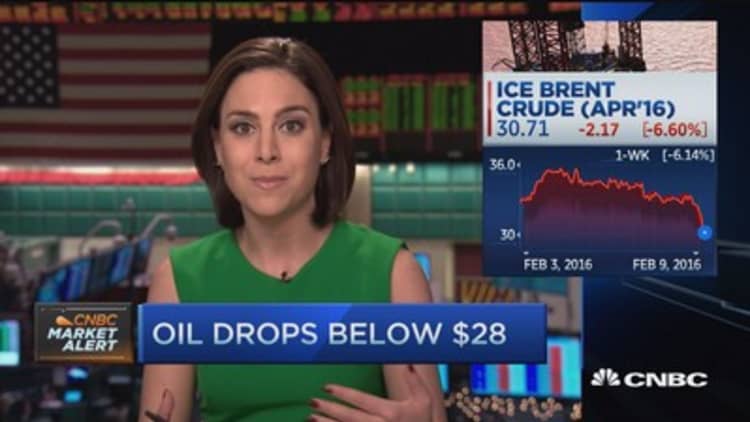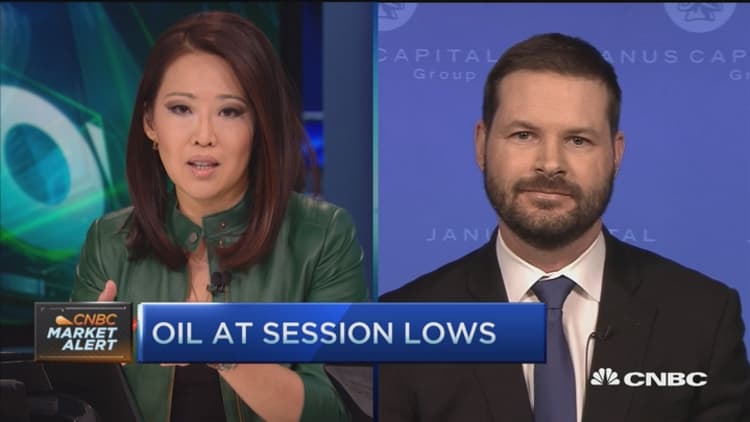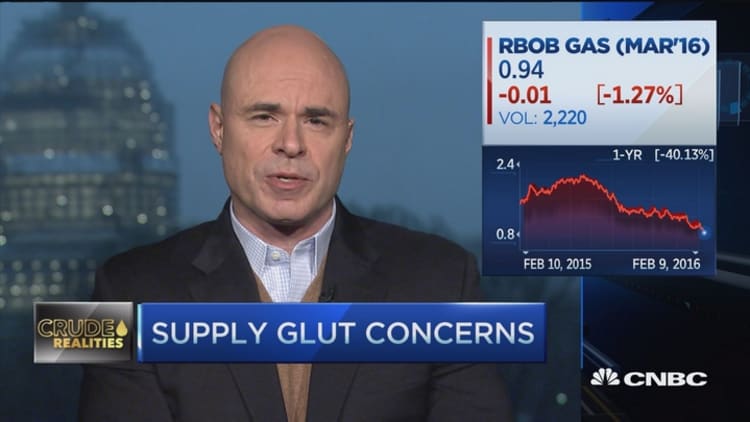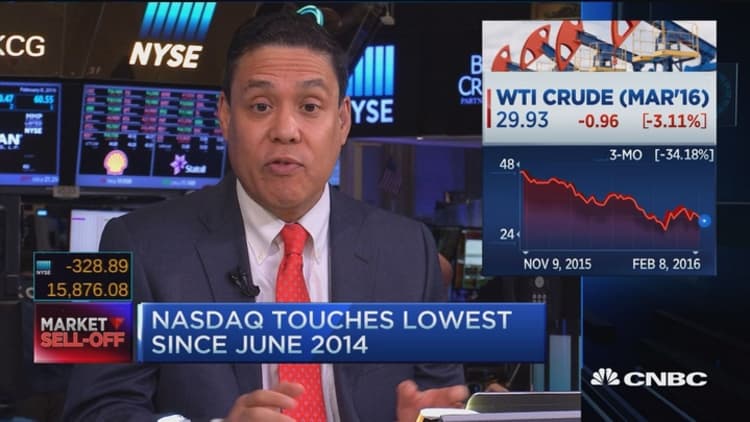




Oil prices briefly fell nearly 8 percent on Tuesday as equity markets remained weak and forecasts of swelling record high U.S. crude stockpiles faced expectations that global demand will not grow quickly enough to erase the overhang of crude any time soon.
Prices were little changed in post-settlement trade after the American Petroleum Institute (API) reported a rise in crude stockpiles last week.
Crude inventories rose by 2.4 million barrels in the week to Feb. 5 to 503.4 million, compared with analysts' expectations for an increase of 3.6 million barrels. Crude stocks at the Cushing, Oklahoma, delivery hub rose by 715,000 barrels, API said.
Gasoline stocks rose by 3.1 million barrels, compared with analysts' expectations in a Reuters poll for a 400,000-barrel gain.
The weekly inventory report comes before Wednesday's official stockpile numbers from the U.S. government's Energy Information Administration (EIA).
Brent crude futures were last down $2.07, or 6.3 percent at $30.81 a barrel by 6:21 p.m. ET, down from Monday's session high of $34.68. U.S. futures settled down $1.75, or 5.89 percent, at $27.94 a barrel, and were last up 37 cents, or 1.32 percent, at $28.31.
Gasoline fell almost 5 percent to around 91 cents per gallon.
Wall Street's key equity index, the , closed down 0.07 percent after falling more than 1 percent over the past two sessions.
The dollar tumbled to a four-month low but that did not do much for oil prices which usually get a boost from the currency's depreciation versus the euro and others.
"For now, the oil market for today is keeping a continued and close watch on equities after yesterday's schizophrenic action, and awaiting the API numbers," said David Thompson, executive vice-president at Powerhouse, a commodities-focused brokerage in Washington.
U.S. crude stockpiles likely rose 3.9 million barrels in the week ended Feb. 5, said a Reuters survey taken ahead of the API data due at 4:30 p.m. (2130 GMT).
In the previous week to Jan. 29, U.S. crude inventories hit record highs of nearly 503 million barrels
The International Energy Agency (IEA) reported Tuesday it did not expect global demand for oil to grow quickly enough to erase the overhang of crude any time soon.
The world will store unwanted oil for most of 2016 as declines in U.S. output take time and OPEC is unlikely to cut a deal with other producers to reduce ballooning output, said the energy watchdog.
The agency cut its forecast for 2016 oil demand growth, which now stands at 1.17 million barrels per day (bpd) following a five-year high of 1.6 million in 2015, and reduced its estimate of demand for OPEC crude.
Separately, the U.S. Energy Information Administration said it expects U.S. crude oil production to fall this year more than it previously forecast. It now sees output declining by 740,000 bpd this year, instead of by 700,000 bpd.
EIA also lowered its 2016 and 2017 forecast for U.S. crude demand growth.
Oil traders are even more bearish.
The world's largest trader, Vitol, said it expects global oil demand to grow by around 1 million bpd this year, down from last year's rate 1.6 million bpd.
"I don't think we can rely on low prices driving much incremental demand at this point," Vitol executive member Chris Bake said at an IP Week conference.
"The fundamentals haven't shifted. The market remains in surplus, and while that's the case, it is very difficult for prices to sustain any gains," said Michael McCarthy, chief market strategist at CMC Markets in Sydney.
There is also little sign of any coordination on production cuts among big producers outside the United States after weekend talks between OPEC members Saudi Arabia and Venezuela yielded no concrete result.
"Such cuts would after all restore equilibrium to the oil market. However, we think there is little prospect of this actually happening, as the interests and motives of the relevant countries are too different," Commerzbank said in a report.
"The reduction of oversupply will have to come from elsewhere, namely from falling U.S. oil production."



